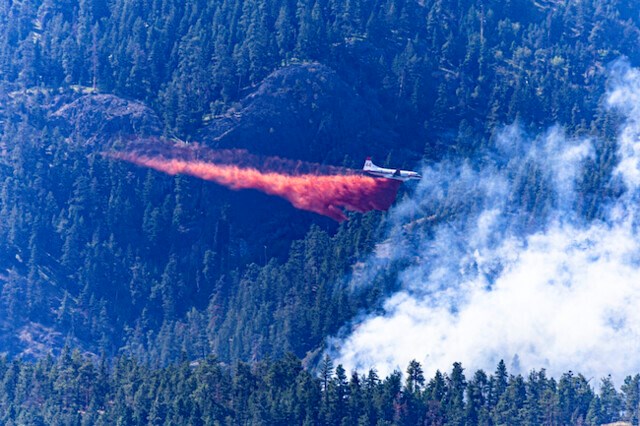Not surprisingly, the BC Wildfire Service (BCWS) says July proved to be an extremely challenging month for wildfire suppression.
Throughout the month, there were 935 new wildfire starts in British Columbia. Over 70 per cent of them have been lightning-caused, according to the agency's monthly seasonal outlook.
A total of 1,439 wildfires have started since wildfire season began with 557,718 hectares burned, as of Aug. 6.
"The extreme heat experienced across the province at the beginning of July, in combination with below-average precipitation levels in June, resulted in fuels being increasingly susceptible to ignition. These conditions also attributed to rapid-fire growth and increased rates of spread on existing wildfires," BCWS says.
The second half of July brought moderate levels of rain to the northern regions of B.C., helping to slow fire growth and calm fire behaviour, but the precipitation was not substantial enough to extinguish a number of large blazes.
BC Wildfire says early August saw widespread rainfall throughout B.C. Though the rain will help moderate fire activity for the short-term, a ridge is forecast to settle over the province bringing another period of warm and dry weather.
As the month progresses, current wildfires of note are expected to grow with potential for big-spread events being when winds increase over 20 kilometres per hour.
"Weather models are indicating that temperatures will remain normal to above normal and precipitation levels will be normal to below normal. These conditions will continue to support new fire starts and sustained fire development.
"The wildfires burning across the province require a large number of wildfire personnel and will continue as such until extended periods of precipitation are received across the province," states the online document.
The service adds that not all rain is equal in helping fight fires.
"The effectiveness of rain on wildfires varies. For example, 10 mm of rain received in a few hours will have less of an impact on wildfires than 10 mm of rain received over five days. The reason for this is the ability of rain to infiltrate surface fuels and soils."



